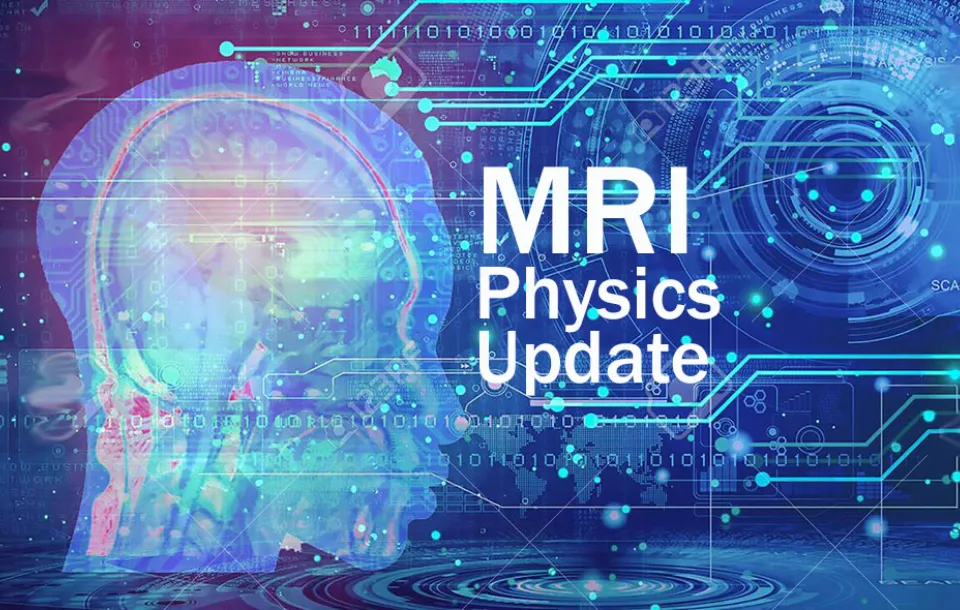
MRI Physics Update
About this Program
This 2-day webinar is designed to provide Medical Physicists and MRI Scientists with practical and updated information to supplement their professional practice. It touches on three main areas that are relevant in current-day clinical MRI Physics -- Safety, Quality, and Optimization.
The MRI Safety section of the webinar may be used by individuals who anticipate fulfilling the role of an MR Safety Expert and/or serve as a resource for the MR Medical Director and MR Safety Officer(s).
The MRI Quality section of the webinar is aimed at reviewing and enhancing a practicing Physicist's knowledge on acceptance and annual equipment performance evaluations, quality assurance, and quality control (to include Homogeneity and RF Coil testing).
The MRI Optimization section of the webinar offers a deeper dive into Artifacts and Protocol Development that builds on the base of MRI Safety and MRI Quality as discussed in earlier sections.
At the end of the 2-day webinar, the intent is to provide the participant with relevant information for an integrated MRI Physics practice that ties in Safety, Quality, and Optimization.
Webinar Convenience - No need to travel!
- This course will be a live webinar broadcast.
- You will experience the lectures from the comfort of your home.
- Asking questions of the instructors is easy via the webinar question box.
- Post-test is required
This program is endorsed by the AAPM.
Educational Objectives
Upon completion of this activity, the participant will be able to:
- Recall the MRI safety considerations for MR static magnetic fields, time varying magnetic field and time varying radiofrequency fields.
- Review the accreditation and regulatory considerations regarding MR safety.
- Describe the engineering controls for MR safety when considering MR construction and shielding design, MR safety zones and MR safety equipment.
- Recognize MRI safety considerations for administrative controls which include MR safety screening, signage and labeling, training, access control, contrast agents and emergencies in the MR environment.
- Understand the origin an manifestation of several types of MR artifacts.
- Identify and understand artifact reduction methods
- Understand the importance of MR protocols and standardization
- Identify key components of an MR protocol
- Understand how protocols are used and their distribution
- Understand bioeffects of SAR
- Identify techniques to minimize SAR
- Identify effects of SAR on implanted devices
~ AAPM endorses the educational component of this program. ~
It does not however, endorse any product used or referred to in the program.
Schedule
What this course will cover
Day One (8:00 am - 3:30 pm)
MRI Safety for Medical Physicists and MRI Scientists
- Static Magnetic Field
- Time Varying Magnetic Fields
- Time Varying Radiofrequency Fields
Break
- Implants, Devices, Objects, and Interpreting IFU’s
Lunch
- Updates in IEC 60601-2-33, ACR Manual on MRI Safety, ACR Manual on Contrast Media
- MRI Safety Considerations – Gadolinium-Based Contrast Agents, Pregnancy, Breast-feeding
Break
- MRI Safety Considerations – Engineering Controls (Construction, Shielding, Zones, Equipment)
- MRI Safety Considerations – Emergencies, Cryogen Safety, Hybrid Modalities, MRI Safety
Adjourn
Day Two (8:00 am - 3:15 pm)
MRI Quality Control, Bo Homogeneity, and RF Coil Evaluation
- MRI Acceptance and Annual Evaluation
- Bo Homogeneity Evaluation
- RF Coil Evaluation
Break
- MRI Quality Control
Lunch
MRI Artifacts and Protocol Development
- MRI Artifacts
- MRI Protocol Development
Break
- Low SAR MR Protocol Development
Adjourn
Audience
Who should attend?
This program is for medical physicists and others wanting to learn more about the technical aspects of MR imaging and those wishing to obtain the continuing education credits required for physicists by the ACR MRI facility certification requirements. It is also appropriate for medical physics students and residents, technically oriented radiologists, MRI technologists and MRI company personnel will also find it of value.
Program Faculty
Meet your presenter(s)

Max Amurao
PhD, MBA, DABR(D,N), MRSE, CMLSO
Max Amurao has been in the Medical Physics and Radiation/Magnet/Laser Safety field for over 20 years. In addition to being heavily involved in Medical Physics education, his clinical practice encompasses Diagnostic Medical Physics, Nuclear Medical Physics, Therapeutic Medical Physics, Radiation and MRI Safety, as well as Laser Safety.
He is a certified Diagnostic Medical Physicist (DABR), Nuclear Medical Physicist (DABR), Medical Laser Safety Officer (CMLSO), Magnetic Resonance Safety Officer (MRSO), Magnetic Resonance Safety Expert (MRSE),and a Health and Safety Professional (CHSP).
Max is based in south Florida, and serves as the Executive Director of the Radiation Control program for the University of Miami, University of Miami Health System, and Jackson Health System.
Trevor J. Andrews
PhD
Assistant Professor
Radiology
Washington University at St. Louis
Krystal Kirby, PhD
Diagnostic Imaging Medical Physicist
Mary Bird Perkins Cancer Center
Baton Rouge, LA
Credits
Accredited training programs
CAMPEP pending
This program is designed to provide 12.5 hours of continuing education. The program has been submitted for approval by CAMPEP for Medical Physics Continuing Education Credit (MPCEC) for qualified medical physicists.
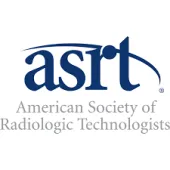
ASRT Category A
This program provides 16.75 hour(s) of Category A continuing education credit for radiologic technologists approved by ASRT and recognized by the ARRT® and various licensure states. Category A credit is also recognized for CE credit in Canada. You must attend the entire program to receive your certificate of completion.
Tuition
Convenient payment options available
| Audience | Price | Early Price | Member Price | Member Early Price |
|---|---|---|---|---|
| Physicist | $840.00 | $795.00 | $805.00 | $770.00 |
| Technologist | $800.00 |
Early Pricing Guidelines
Qualifying 'Early' registrations must be made at least 21 days in advance for the program.
Cancellation Policy
Seminars/Webinars 8 hours of credit or more
Refunds, minus a $30 processing fee, will be granted for cancellations received at least 3 days prior to the program. Cancellations received within 3 days of the program will receive a credit toward a future MTMI program, minus the $30 processing fee. No refunds will be made after the program starts. MTMI reserves the right to cancel any scheduled program because of low advance registration or other reasons. MTMI’s liability is limited to a refund of any program tuition paid. MTMI recommends that attendees use refundable airline tickets. In case of cancellation of a program for any reason, MTMI is not responsible for travel costs incurred by attendees including non-refundable airline tickets. When offered, WEBINAR ATTENDEES that cannot log in due to unsolvable technical issues beyond their control will be eligible for a full refund.








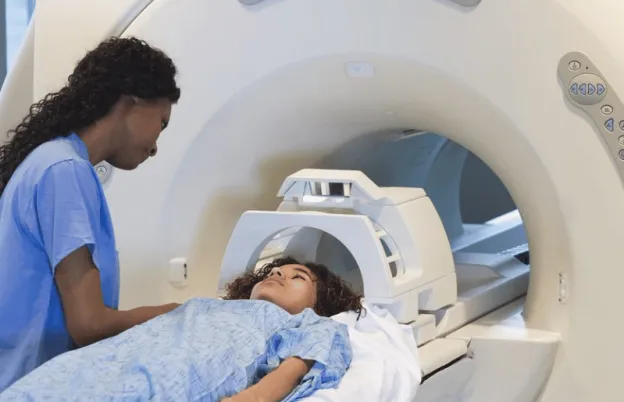
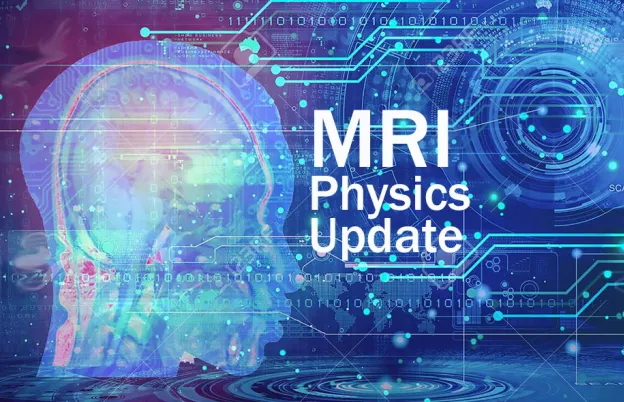

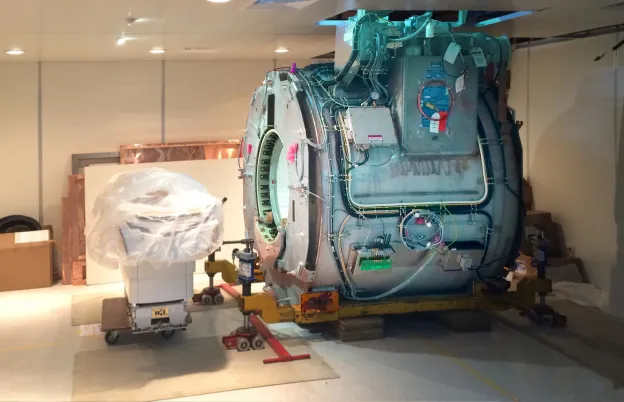

 at checkout.
at checkout.